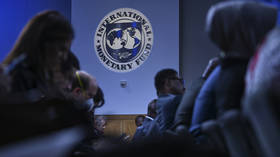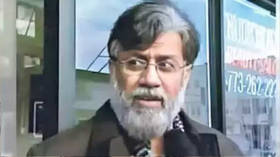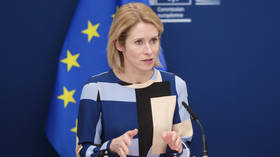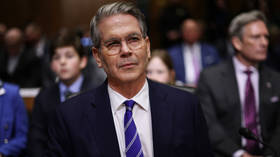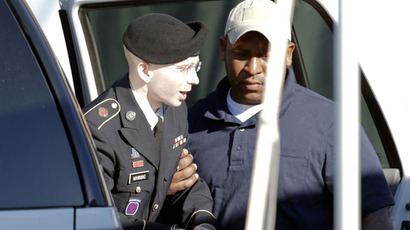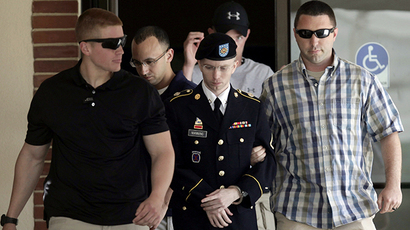Judge refuses to drop charge of aiding the enemy against Manning
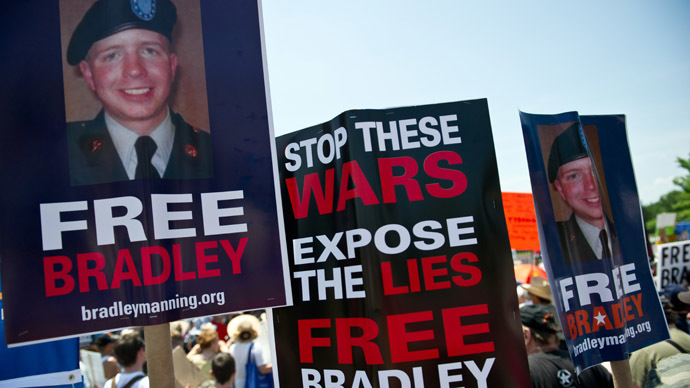
Army Private first class Bradley Manning will continue to be tried for aiding the enemy, a military judge ruled Thursday morning, leaving open the possibility of life in prison for the admitted source of a major intelligence leak.
Despite an attempt from the defense to have the most serious of
charges against Pfc. Manning dropped, Col. Denise Lind ruled from a Ft. Meade, Maryland courtroom
early Thursday that the former Army intelligence analyst will
continue to be tried for aiding the enemy.
BREAKING: Judge denies motion to find Bradley Manning not guilty of 'aiding the enemy'
— Liz Wahl (@lizwahl) July 18, 2013
Government prosecutors say Manning, 25, indirectly aided al-Qaeda in the Arabian Peninsula by sharing hundreds of thousands of classified documents with the anti-secrecy website WikiLeaks in late 2009 and early 2010. In February of this year, Manning admitted to what’s been called the largest intelligence leak in US history and pleaded guilty to 10 lesser-included offenses in hopes of receiving a lighter sentencing when his military court-martial concludes later this summer.
When the prosecution wrapped up their case earlier this month, defense attorney David Coombs filed motions asking the court to dismiss the charge of aiding the enemy and another allegation against Manning that he violated section 1030 of the federal Computer Fraud and Abuse Act when collaborating with WikiLeaks.
“[T]here is an ‘absence of some evidence which, together with all reasonable inferences and applicable presumptions, could reasonably tend to establish every essential element of an offense charged,” Coombs told the court.
With Lind’s Thursday morning rejection, however, Manning will continue to stand trial against both of those counts and around 20 others.
The defense called 10 witnesses last week in only three day before resting their case. Next the government will begin its rebuttal case and soon the sentencing phase of the court-martial will commence. But although Col. Lind has refused to grant the defense’s request to drop the most serious of charges, she may elect later in the trial to find Manning not guilty of aiding the enemy.
Last week, Coombs called Harvard Law professor Yochai Benkler to the stand in order to testify about the role of WikiLeaks in twenty-first century journalism. In the wake of the government portraying WikiLeaks as an organization that facilitates the efforts of terrorist groups, Benkler warned that a guilty conviction of aiding the enemy could have major repercussions in the world of reporting.
Benkler told Lind that “the cost of finding Pfc. Manning guilty of aiding the enemy would impose” too great a burden on the “willingness of people of good conscience but not infinite courage to come forward,” and “would severely undermine the way in which leak-based investigative journalism has worked in the tradition of free press in the United States.”
“[I]f handing materials over to an organization that can be read by anyone with an internet connection, means that you are handing [it] over to the enemy — that essentially means that any leak to a media organization that can be read by any enemy anywhere in the world, becomes automatically aiding the enemy,” Benkler said.
“The government's whole argument seems to be premised on creating WikiLeaks as a bad organization,” insisted Coombs.
Julian Assange, the Australian founder of WikiLeaks, said in a conference call to RT last month that “The broad case establishes a precedent that publishing national security related information about the United States is espionage.”
Journalist Alexa O’Brien tweeted from Ft. Meade on Thursday that, if convicted on all counts, Pfc. Manning could receive a sentence of 154 years-to-life. The lesser-or-included charges he pleaded guilty to earlier this year would carry a maximum of only 20.
That means that Manning is exposed to 154 years (not 149 years) plus life. #Manning
— Alexa O'Brien (@carwinb) July 18, 2013




